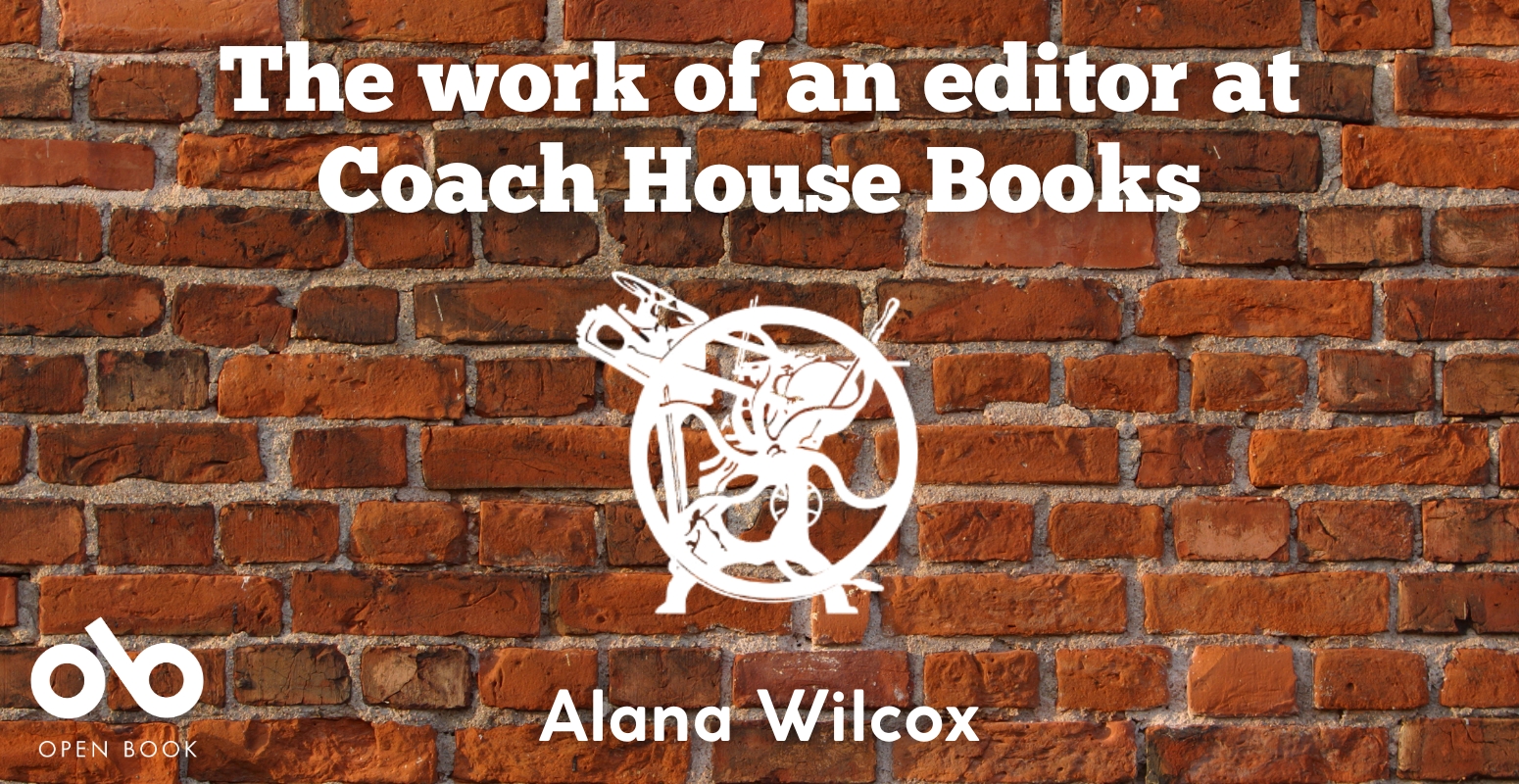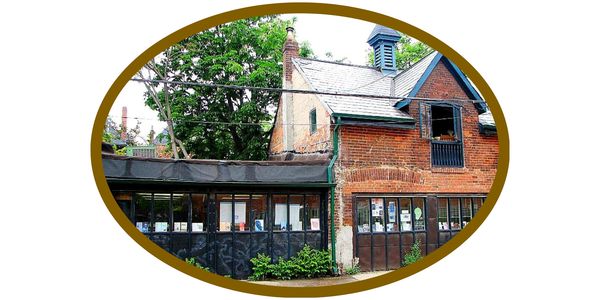The work of an editor at Coach House Books
By Alana Wilcox
Editing, at its best, is invisible. The reader of a book will never know what the manuscript looked like when it was submitted, never know what the author and editor changed to make the finished book what it is. Sometimes the edits are mostly cosmetic, and sometimes they’re monumental; either way, the reader won’t know. From the outside, the editing process might seem utterly mysterious.
But it needn’t be a mystery! Whether you’re a reader who’s curious about how a book gets to be what it is or a writer who’s about to undergo the process, it can only help to understand how editing works.
The first edit is usually a big one, the substantive edit, where we look at the big-picture questions. For fiction, these might focus on:
- Story: Does it make sense? Are there gaps? Is it compelling? Do we have all the information we need, presented in a way that gives the reader enough but not too much at any given point?
- Characters: Are they coherent and consistent? Do they each have a clear and distinctive voice in their dialogue?
- Pacing: Does the book feel even throughout? Are there passages that move too quickly or too slowly, or places where we get bogged down?
- Voice: Is it consistent, strong, unique?
- Ideas: Are the ideas or themes the author wants to consider evident in the text? Are they presented with just the right amount of subtlety/explicitness?
As an editor, I read the manuscript with questions like these in mind. For me, in this pass, I don’t mark up the manuscript but instead make notes – which can run pages and pages. Most of these notes are questions for the author. And then we have a conversation about what the author wants the book to be, what they want it to say or accomplish, what kind of experience they want the reader to have.
My use of bullet points may imply that there’s a kind of formula to editing. There is not. When it’s working well, it feels like intuition. When it’s working well, it even feels like a kind of alchemy. My job is to be a kind of everyreader, making sure that I’m picking up what the author is putting down. But at the same time, I need to feel a kind of Vulcan mind-meld with the author, to make sure I’m helping to make the book be what they want it to be, not what I want it to be. Mostly this means asking a lot of questions, which can sometimes seem simple, or obtuse, or invasive. But these questions are how we get to the heart of the book.
Your CanLit News
Subscribe to Open Book’s newsletter to get local book events, literary content, writing tips, and more in your inbox
Subsequent edits may be more formulaic. The line edit, the copy edit, the proofread: these edits are more mechanical in nature. They’ll clean up the grammar and punctuation and verb tenses, they’ll check the facts, they’ll make sure a character’s hair colour doesn’t inadvertently change halfway through. They’ll make sure the jokes work and that a character doesn’t open a door after walking through it, and they’ll point out that the adjective ‘miserly’ appears fifty-seven times or they’ll identify some other writing tic. These passes will tidy the book. They’re crucial, and it’s often here that the author learns a lot, if they’re open to it; an author once told me that reconsidering verb tenses made them understand their writing in a whole new way.
At Coach House Books, I’ve had the honour of working with hundreds of authors, and I’ll say that the writers who enter the editorial relationship with openness and humility and curiosity and a spirit of collaboration often end up with the best books. They’re the books where we both come away feeling like we’ve learned something. No one will ever see the work that an editor has done on a book, the questions they’ve asked the author to consider, the suggestions they’ve made. That work is not done with the editor’s ego in mind. The editor’s goal, always, is to make an author’s book the very best it can be, for the book to be read and understood in precisely the way the author wants.
The very best part of my job is having editorial conversations with authors: talking about ideas, inhabiting the characters, exploring the nuances of plot, sometimes even finding myself thinking and talking in the author’s rhythms and vocabulary – and imagining, together, the possibilities of where the book might go. Whether the changes to the manuscript are large or small and whether the author ends up taking my suggestions don’t always matter; what matters is that the decisions feel fully articulated and explored, that every aspect of the book feels thoroughly considered and interrogated. Authors who come to the process willing to question every part of their book will have the best experience, and it’ll show in the book.
The views expressed by Open Book columnists are those held by the authors and do not necessarily reflect the views of Open Book.
Alana Wilcox is the Editorial Director of Coach House Books, an independent literary publisher in Toronto, where she has edited many books, including Giller Prize winners Fifteen Dogs by André Alexis and Suzette Mayr’s The Sleeping Car Porter, and co-founded the uTOpia series of anthologies about Toronto. She is on the board of the Association of Canadian Publishers and, in 2018, won the Janice E. Handford Award for her contribution to literary publishing.





